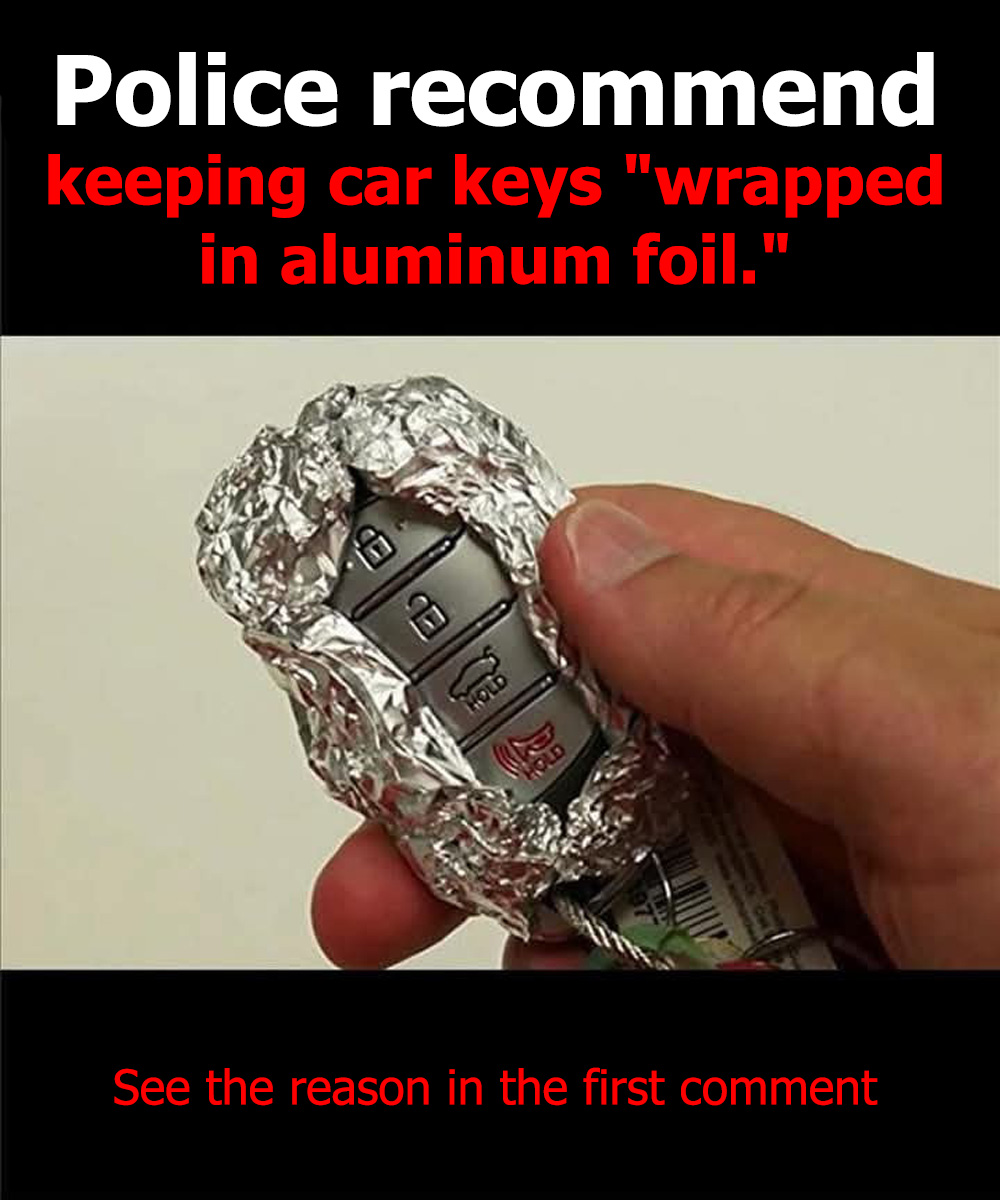Starting today, you might want to consider wrapping your car key in aluminum foil—and no, it’s not a joke or some strange internet trend. It’s a serious tip from cybersecurity experts aimed at protecting your vehicle from a new wave of high-tech theft.

Modern car keys, especially those that allow for keyless entry or push-to-start ignition, are constantly transmitting signals, even when they’re just sitting in your pocket or resting on a table. These signals are what your car uses to recognize that the key is nearby, allowing you to unlock the doors or start the engine without physically inserting a key. But here’s the problem: thieves have found a way to intercept those signals and replicate them using inexpensive technology, making it possible to unlock and steal a car without ever touching the original key. Experts say that criminals can buy an original key or a device that mimics one and use it to copy your car’s unique access code simply by capturing the signal your key is constantly transmitting.
That’s where aluminum foil comes into play. Wrapping your key in foil is a simple and low-cost way to block those signals from being picked up by anyone nearby. It acts like a shield, preventing the electromagnetic waves from escaping or being intercepted. While this method might seem a little old-fashioned or even silly, cybersecurity professionals say it works in a pinch. If you want something a bit more polished and durable, you can buy a Faraday bag online for just a few bucks. These bags serve the same purpose as aluminum foil by blocking signal transmission and protecting your key from hackers. Moshe Shlisel, CEO of GuardKnox Cyber Technologies and a former developer of missile defense systems for the Israeli Air Force, explained the concept to BBC Mundo using an easy-to-understand analogy. He compared the key’s signal to a song that plays continuously.
Your car listens for that song, and when it hears it, the doors unlock and the engine starts. If someone else knows the tune or records it, they can play it back and trick your car into thinking the key is present. Shlisel emphasizes that foil or a Faraday bag essentially creates a mini safe around your key that blocks the signal—kind of like putting your key in a soundproof room where no one can hear the song it’s playing. Some people might think this all sounds overly cautious or even outdated, especially in the digital age, but Shlisel insists that the threat is very real and growing. Even though exact statistics on these thefts are hard to track, reports are increasing, and one reason is that the tools required to pull off this kind of theft are easy to find. Anyone with internet access can buy the necessary devices, and there are even YouTube videos that walk viewers through the entire process step-by-step. That’s why experts are sounding the alarm. Shlisel notes that the automotive industry is well aware of this vulnerability and is working on ways to improve the security of keyless entry systems. The goal is to make it nearly impossible for anyone to copy or intercept the communication between your key and your car. But until those improved systems are widely available, drivers are being encouraged to take simple precautions. Something as basic as wrapping your key in aluminum foil or using a Faraday pouch can make a big difference. It may not be high-tech, but it’s an easy, affordable solution that adds a layer of protection. In a world where car thieves no longer need a crowbar or a coat hanger but instead rely on digital tools and wireless hacking, staying a step ahead means thinking differently about security. You don’t need to live in fear, but you should be smart. That extra layer of foil in your pocket might just be the thing that keeps your car exactly where you left it.





